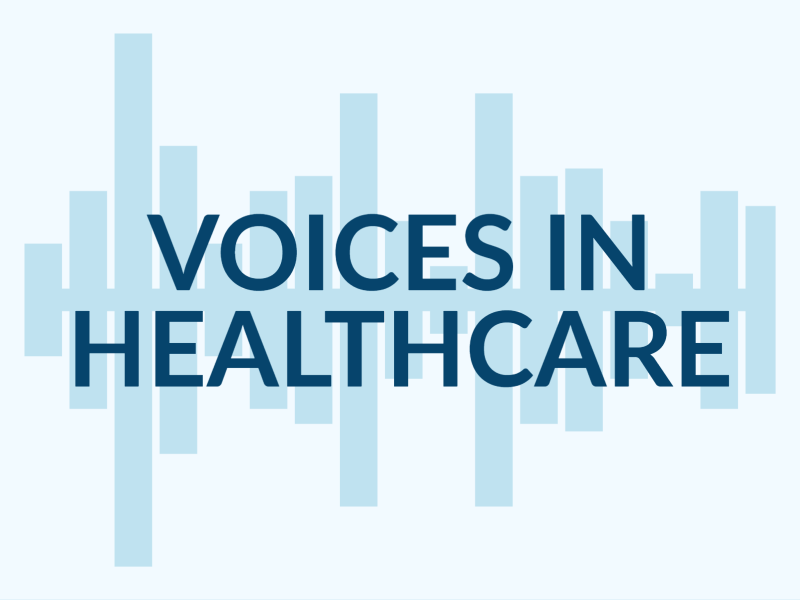Honoring Mental Health Awareness Month through Public Advocacy


May marks Mental Health Awareness Month, a time to spotlight the importance of wellbeing and continued improvements to our healthcare system. MHA and our members are at the forefront of this mission, championing policies and initiatives that enhance access to behavioral health services, support the healthcare workforce, and ensure the stability of the behavioral health continuum. This month and every month, we will continue to pave the way for a more inclusive and responsive mental healthcare system in the commonwealth through our advocacy efforts, including the priority legislation below.
MHA’s Behavioral Health Legislative Priorities
An Act Expanding Access to Mental Health Services (H.1131 | S.773)
Sponsors: Rep. Marjorie Decker; Sen. John Keenan
The legislation aims to improve access to behavioral healthcare by reducing financial and administrative barriers. It updates insurance requirements to match the state’s Behavioral Health Roadmap and the 2022 Mental Health ABC Act – specifically around insurance coverage for emergency room behavioral health evaluations and reducing prior authorization requirements. It also allows physician assistants to admit psychiatric patients and empowers clinicians, in collaboration with their patients, to determine what care is medically necessary. Finally, it expands the pool of professionals who qualify as a licensed mental health professional, boosting the behavioral health workforce.
An Act to Ensuring Access to Behavioral Health Services for Children Involved with State Agencies (H.213 | S.111)
Sponsors: Rep. Marjorie Decker; Sen. Brendan Crighton
This bill seeks to improve access to mental health services for children involved with state agencies, including the Department of Mental Health (DMH), the Department of Developmental Services (DDS), and the Department of Children and Families (DCF). It requires DCF to create and support an emergency response plan for congregate care settings and creates presumption that a child would return to a DCF group home after a leave of absence, with accountability for denied readmissions. DCF would coordinate care through an emergency team and reimburse programs for holding beds during treatment in other settings. Additionally, DCF and DDS would develop a comprehensive plan to address access to behavioral health services, evaluate alternative placements, and enhance coordination with local education agencies. A commission would be established to explore alternative placements for children not adequately served by existing psychiatric or treatment models. DMH would also take primary responsibility for facilitating specialized mental health services for individuals involved with both DMH and DDS. The bill ultimately works to streamline services and ensure that children receive the appropriate mental healthcare and placements they need.
An Act Relative to Opioid use Disorder Treatment and Rehabilitation Coverage (H.1337)
Sponsors: Rep. Andy Vargas; Rep. Kate Donaghue
This legislation mandates that healthcare payers fully reimburse medications used to treat opioid use disorder without requiring prior authorization. It ensures reimbursement regardless of whether the medications are filled by prescription, are dispensed directly to the patient without needing to go to a pharmacy (as is best practice) or are administered to the patient in a treatment facility. The goal of the legislation is to remove barriers to lifesaving addiction treatment and expand access statewide.
An Act Establishing Alternative Model for Behavioral Health Transport (H.2234 | S.1397)
Sponsors: Rep. Adam Scanlon; Sen. Paul Feeney
This bill empowers the Executive Office of Health & Human Services (EOHHS) to establish a pilot program to evaluate innovative ways of transporting behavioral health patients. Instead of relying on traditional ambulance services, these pilots would evaluate the use of non-emergency medical transport as a less stigmatizing and potentially more efficient alternative. The initiative will be led by EOHHS, in consultation with hospital-based behavioral health providers. The bill would require health insurers and Medicaid plans under MassHealth to reimburse participating providers for this type of transport. Additionally, the bill directs the Health Policy Commission, in partnership with state health data agencies, to evaluate the effectiveness of the pilot programs. This includes studying transfer times, the dignity of patient treatment, cost-efficiency, and proper resource use compared to standard ambulance services. Based on the findings, the study will also provide recommendations for future reimbursement rates in both public and private healthcare payer systems.
An Act Improving Access to Post Acute Services (H.1412 | S.903)
Sponsors: Rep. Thomas Stanley; Sen. Pavel Payano
This bill aims to improve the discharge and transition process for patients in post-acute care hospitals by streamlining approvals for home health services, assigning regional case managers for complex discharges, expanding medical and behavioral health services in skilled nursing facilities, reforming Medicaid reimbursement rates, enhancing guardianship oversight, and supporting workforce development and telehealth infrastructure in long-term care settings
An Act Relative to Insurance Coverage of Mobile Integrated Health (H.1154 | S.726)
Sponsors: Rep. Michael Finn; Sen. Bill Driscoll
This legislation would disallow public and private health plans from refusing to cover healthcare services on the basis that they were delivered by a state-approved mobile integrated health (MIH) program, requires that said services be covered to the same extent as they would have had they been provided in a healthcare facility, and would lift application and registration fees for MIH programs that are focused on delivering behavioral health services.

 Massachusetts Health & Hospital Association
Massachusetts Health & Hospital Association